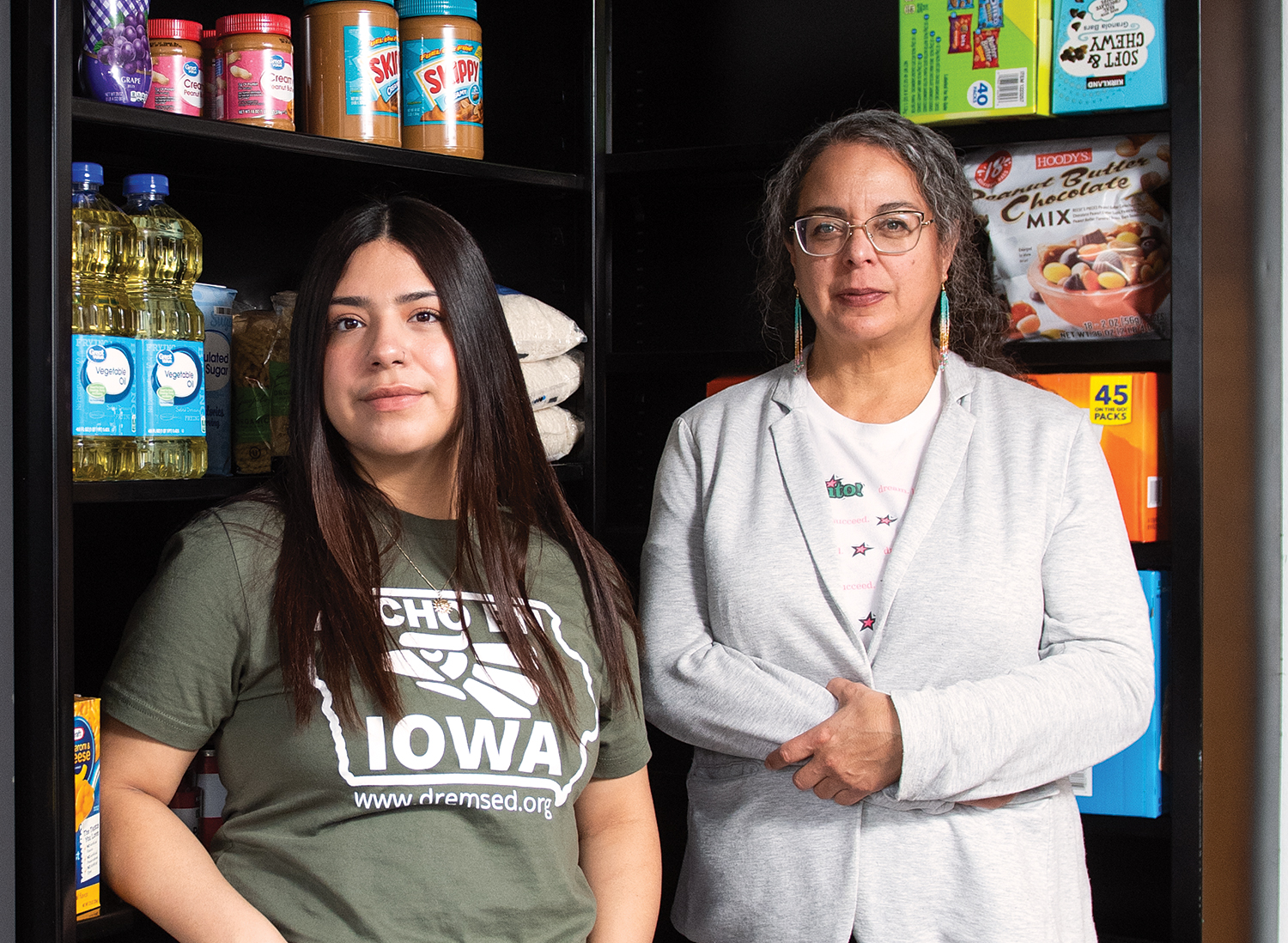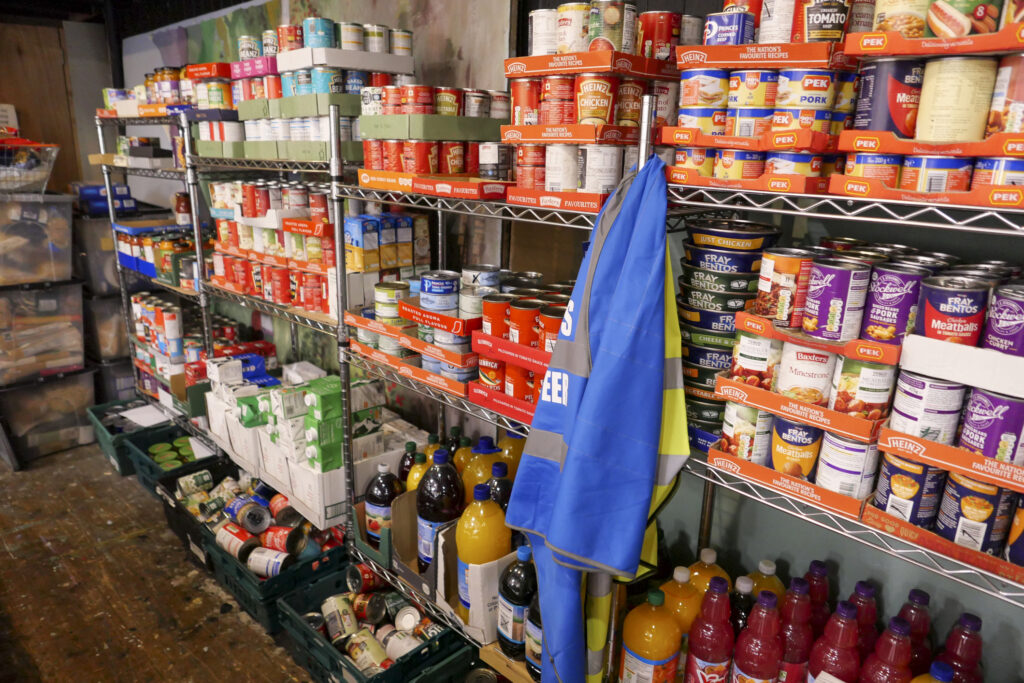Investing in the Latino community’s growth
Al Éxito’s Compa en Camino program seeks path forward to serve Des Moines’ Latino workforce

Sarah Diehn Mar 17, 2023 | 6:00 am
5 min read time
1,140 wordsBusiness Record Insider, Diversity, Equity and Inclusion, Economic Development, Nonprofits and PhilanthropyLatino population growth in the Des Moines metro area is projected to more than double by 2050 to about 117,200 residents to make up about 13% of the population, according to the Nuestro Iowa report compiled by the Iowa Latinx Project.
The area’s Latino community currently totals about 52,000 residents, with the highest concentrations in the Des Moines area and nearby Marshalltown. More than 22,000 Latino workers in the metro collectively earn $1 billion in annual income, the report found.
The data signals the larger role the Latino community will have in Central Iowa’s workforce and culture in coming years, but one Des Moines-based organization says a significant portion of the community lacks the basic services and resources they need to work and live.
Al Éxito, a nonprofit serving more than a dozen communities statewide, has stepped in to fill gaps and become one of the few trusted Spanish-speaking resources in the Des Moines area, Executive Director Dawn Martinez Oropeza said.
The nonprofit’s programming is typically geared toward youths, but Martinez Oropeza spun out its Compa en Camino program when the pandemic began and needs were amplified for Latino students and their families.
Compa en Camino, meaning partners on the go, helped more than 200 families in 2022 with virtually any need, including food, clothes, transportation, job assistance, tutoring, translation and housing support. Sometimes assistance looks like sitting with someone in the hospital or accompanying a parent to a meeting at their child’s school.
In the most serious situations, financial assistance has helped families avoid eviction or pay for utilities. Martinez Oropeza said some students in Al Éxito’s programs have lived for months without water or electricity. The program has also served pregnant women and those fleeing domestic violence.
Martinez Oropeza said families’ experiences are “multilayered and complex” as the effects of issues compound and persist three years on from the pandemic.
“The families we are seeing have never fully recovered,” she said.
But the program’s capacity has been limited after funding allocated at the beginning of the pandemic ran out. In 2021, Al Éxito moved into an office space on Grand View University’s campus and hired Melissa Hidalgo as the Compa en Camino program coordinator, a role that is now held by Sarahi Perez.
Martinez Oropeza said she would like to see more accessible funding opportunities and expand the program through collaboration.
“This program has such great potential to be a collaborative hub for other nonprofits that want to expand their diversity and equity efforts and serve in a different way,” she said. “But we are also able to pick up things that nobody else is going to do.”
Compa en Camino is also a resource for Des Moines Public Schools, and human services or community organizations whose clients are ineligible for assistance or need culturally specific services for clients or families.
Martinez Oropeza said she wants the program to do more work with partners to expand its reach. Her vision of expansion also looks like finding a space that is accessible to the community and shared with other nonprofits. She wants to have additional full-time positions working on the program as well as “compas,” paid individuals who would help provide services in the community.
“My vision is that we would expand the translation services for nonprofits and for corporations that would help fund Compa en Camino,” she said. “We’re looking for ways to fund ourselves, to be self-reliant.”
Compa en Camino’s goal is to continue as a bridge between the Latino community and resources they need from local organizations, which don’t always have the community’s trust.
Martinez Oropeza said Latinos frequently experience distrust or fear of local and state institutions. Language and cultural barriers as well as economic disparities can prevent them from seeking help.
Hidalgo said community members are scared or embarrassed to reach out for help because of cultural norms that they always have to be “resilient.”
“We’re taught … you need to get over it, move on. You have to be strong. There’s no time to waste,” Hidalgo said.
Undocumented immigrants face concerns that seeking help will hurt their ability to become a citizen.
According to the Nuestro Iowa report, 44% of Latinos in the Des Moines metro area were born in Iowa. Twenty-two percent were born in another U.S. state.
‘Are we investing now in their success?’
The pathway to citizenship is another barrier new arrivals to the community can face, something the Iowa Business Council is working to change at the federal level.
The nonpartisan nonprofit organization is made up of members from Iowa’s 20 largest employers. Federal immigration reform has been one of its priorities for several years as it pursues solutions to Iowa’s workforce needs.
“We want a process that runs smoothly, that runs legally and provides appropriate vetting mechanisms for individuals that come into this country,” IBC Executive Director Joe Murphy said. “I think everybody wants to see that. That’s common sense.”
Murphy said there is support from Iowa companies, but putting reform in place is still years away. With that issue being out of companies’ hands, he said there are other ways for businesses to support the Latino community. Pella Corp., for example, provides English training for workers whose primary language is Spanish and offers Spanish training to English-primary speakers, he said.
He said nonprofits like Al Éxito help community members navigate language and cultural barriers and support their stability and well-being.
“I think as we talk about making sure that our communities are welcoming, having those services available to all populations is critical so that people feel welcomed so that they stay and then, in time, contribute to society and to the business climate,” Murphy said.
Martinez Oropeza said immigration is an important piece of the conversation about the Latino community, but it often dominates discussion about the ethnic group. Knowing the Des Moines area will have a larger Latino population in the near future, she said businesses and the region should ask, “Are we investing now in their success?”
Kenia Calderon Ceron, vice president and bilingual business development director at GreenState Credit Union, said working on the Iowa Latinx Project has cemented what she knows about the impact of Des Moines’ Latino community. But conversations have shown that Latino talent could be at risk of leaving Iowa, she said.
She said Latinos who are citizens and college-educated have experienced trouble finding jobs.
“We don’t want to lose our talent, but Latinos will continue to leave Des Moines if they can’t find any jobs,” Calderon Ceron said. Businesses can intentionally look outside of their usual networks as Latinos may not know every custom around hiring or have fewer connections.
Without community investment, Martinez Oropeza said, “how committed are [Latinos] going to be to Des Moines, and how invested are they going to be in the community?”

Sarah Diehn
Sarah Diehn is editor at Business Record. She covers innovation and entrepreneurship, manufacturing, insurance, and energy.










